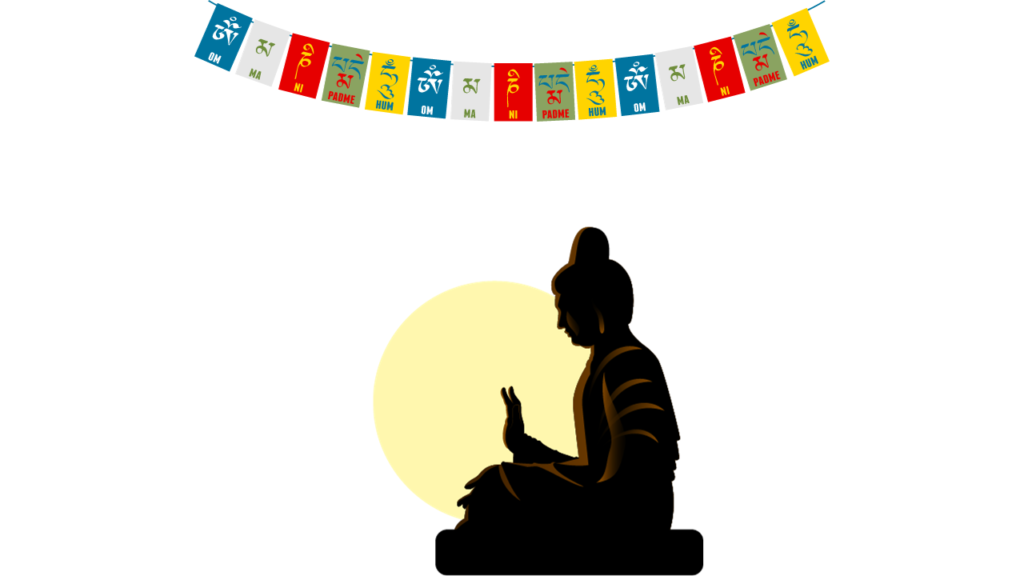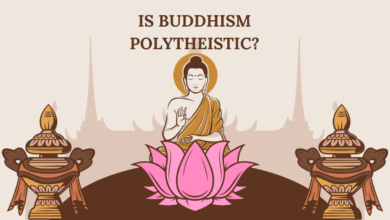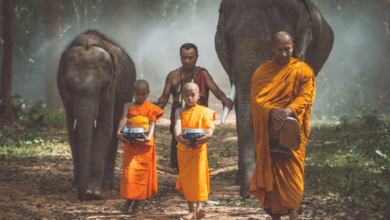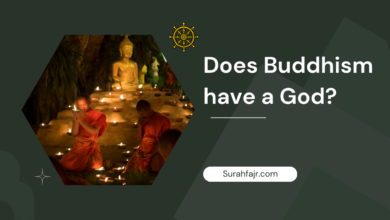How Many Gods Does Buddhism Have?
Exploring the Divine Perspective: How Many Gods Does Buddhism Have?
How Many Gods Does Buddhism Have?
Buddhism is generally considered a non-theistic or atheistic religion, which means it does not revolve around a belief in gods or a single, all-powerful deity. Therefore, Buddhism does not have gods in the traditional sense.
Introduction
Buddhism is one of the world’s major religions, known for its profound philosophical teachings and the pursuit of enlightenment. One of the unique features of Buddhism, especially when compared to many other major world religions, is its distinct lack of a belief in a personal, all-powerful deity. Instead, Buddhism is often described as a non-theistic or atheistic religion. In this article, we will explore the concept of gods in Buddhism and how the religion’s perspective on divinity differs from other faiths.
The Nature of Buddhism
Buddhism originated in India around the 6th century BCE with the teachings of Siddhartha Gautama, who is often referred to as the Buddha, meaning “the enlightened one.” Buddha’s teachings revolve around the Four Noble Truths, the Eightfold Path, and the pursuit of Nirvana, a state of ultimate liberation from suffering and rebirth. Buddhism does not have a central god or gods to worship, which sets it apart from theistic religions like Christianity, Islam, and Hinduism.
The Concept of Deities in Buddhism
Buddhism acknowledges the existence of various celestial beings, but it does not adhere to the worship of gods or a single creator deity. The Buddhist cosmos includes a hierarchy of divine beings, such as devas and brahmas, who exist in higher realms but are not all-powerful. These beings are subject to the laws of karma and the cycle of birth and death, just like humans. Unlike the gods in many other religions, these celestial beings are not considered the ultimate source of salvation or enlightenment.
The Dharma, Not Deities
The core of Buddhist belief centers on the Dharma, which encompasses the teachings and principles expounded by the Buddha. The Dharma is the ultimate guide for followers on how to attain enlightenment, escape the cycle of suffering, and reach Nirvana. Buddhists are encouraged to focus on understanding and living by these principles rather than relying on divine intervention. The emphasis is on personal responsibility, meditation, ethical conduct, and self-awareness.
In this way, Buddhism differs from theistic religions, where followers often pray to gods for guidance, help, or intervention in their lives. In Buddhism, individuals are expected to take charge of their spiritual journey and practice mindfulness and self-improvement without the need for divine assistance.
Also Check
- Is Buddha A Philosopher?
- Where Is Buddhism Most Practiced?
- Do Buddhists Believe In God?
- Is Christian Bale British?
- Biblical Teachings
The Role of Bodhisattvas
Although Buddhism does not worship gods, it does have a concept known as Bodhisattvas. Bodhisattvas are enlightened beings who have chosen to postpone their own entry into Nirvana to help others on their path to enlightenment. The most well-known Bodhisattva is Avalokiteshvara, associated with compassion. While these figures are respected and venerated in various forms of Buddhism, they are not considered gods in the traditional sense.
Cultural Variations
It’s important to note that Buddhism has adapted differently in various regions, leading to some variations in beliefs and practices. For instance, Tibetan Buddhism incorporates elements of local folklore and deities, and some forms of East Asian Buddhism, such as Japanese Pure Land Buddhism, revere celestial buddhas and bodhisattvas more prominently. These adaptations have occasionally led to a more theistic interpretation of Buddhism in specific cultural contexts.
Conclusion
Buddhism is often characterized as a non-theistic or atheistic religion because it does not revolve around the worship of gods. Instead, it emphasizes self-realization, the pursuit of enlightenment, and ethical living. While celestial beings like devas and bodhisattvas play a role in Buddhist cosmology, they are not gods in the traditional sense. The absence of a personal god in Buddhism is one of its defining features, setting it apart from theistic religions. Followers look inward and rely on the Dharma, meditation, and ethical conduct as their path to liberation from suffering and rebirth.

(FAQs) about the number of gods in Buddhism:
How many gods does Buddhism have?
Buddhism is generally considered a non-theistic or atheistic religion, which means it does not revolve around a belief in gods or a single, all-powerful deity. Therefore, Buddhism does not have gods in the traditional sense.
If Buddhism doesn’t have gods, what do Buddhists worship?
Buddhists primarily focus on the teachings and principles of Siddhartha Gautama, known as the Buddha, rather than worshipping gods. They seek to attain enlightenment and liberation from suffering through meditation and the Eightfold Path.
Are there no divine beings in Buddhism at all?
While Buddhism doesn’t have gods, it does acknowledge the existence of various celestial and supernatural beings, such as devas (celestial beings) and other spirits. However, these beings are not considered deities and do not hold supreme power over human lives.
What is the role of devas in Buddhism?
Devas are considered to be on a higher plane of existence but are still subject to the cycle of birth, death, and rebirth (samsara). They are not creators or saviors but may possess greater knowledge and blessings due to their virtuous actions in past lives.
Do Buddhists pray to these devas or seek their help?
Some Buddhists may offer prayers and offerings to devas, seeking protection or guidance. However, this practice is not universal, and the focus of Buddhist practice remains on personal development and enlightenment.
Is there a central figure like a god in Buddhism?
The closest figure to a central deity in Buddhism is the Buddha, but he is revered as a fully enlightened human being who reached Nirvana (liberation from suffering) through his own efforts. Buddhists look to him as a teacher and an example but do not worship him as a god.
Does Buddhism accept other gods from other religions?
Buddhism generally does not have a problem with the belief in other gods from different religions. It tends to be inclusive and respects various belief systems, as long as they do not contradict the core teachings of Buddhism.
Are there sects or branches of Buddhism that incorporate gods or deities?
Some sects and schools of Buddhism, particularly in East Asia, have incorporated local deities and traditional beliefs into their practices. These syncretic forms of Buddhism may include elements of devotional worship to gods, but this varies widely across different traditions.
Can Buddhists be atheists and still practice their religion?
Yes, many Buddhists identify as atheists or secular Buddhists because Buddhism’s core teachings do not require belief in gods. One can follow Buddhist principles and practices without a belief in deities.
How does Buddhism address questions of the afterlife or the soul without a god?
Buddhism teaches the concept of reincarnation, where an individual’s consciousness (not a soul in the traditional sense) is reborn into a new form based on their karma. This process continues until one attains Nirvana, breaking the cycle of rebirth.


